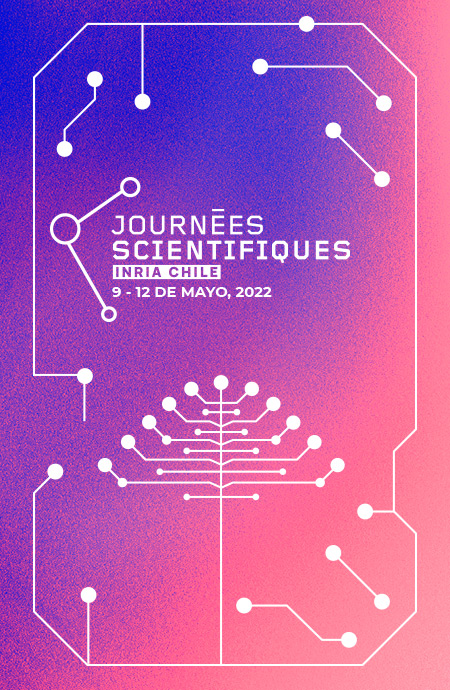

In the first Scientific Conference organized by Inria Chile, more than 100 Chilean and French scientists, researchers, engineers, students and authorities gathered to learn and discuss about Artificial Intelligence, Internet of Things, applied mathematics, Open Science, climate, biodiversity and astronomy, among other topics.
One of the fundamental objectives of this meeting was to strengthen the links between the scientific ecosystems of France and Chile, which, although longstanding, must always look to the future, assuming new challenges of bilateral collaboration.
In the inaugural session, we had the participation of the Minister of Science, Technology, Knowledge and Innovation of Chile, Flavio Salazar, who in his welcoming remarks pointed out that for the Chilean government it is a priority to "promote international collaboration to improve our own scientific capacity and technology, and we value our excellent relationship with France and its scientific community”.


On the other hand, the French government, represented by Ambassador Pascal Teixeira da Silva, highlighted the importance of public funding for scientific research: “It is important to note that Inria in France is one of the most important scientific organizations with public funds and, at the same time, Inria Chile receives public funds from Chile and France, and we are very proud of it”.


Likewise, on the second day, the head of the Department of Strategy, Experiences and Management of Bilateral Collaborations of the Ministry of Higher Education, Research and Innovation of France, Joaquim Nassar, presented the French research model, emphasizing that its objective "is to simplify life of laboratories and research communities, which includes something that is very important to foster innovations that make the mobility of researchers between the public and private sectors easier than it is now”.


Finally, it is worth mentioning the intervention of the Delegate General Director of Sciences of Inria, Jean-Fréderic Gerbeau, during the opening session, where he pointed out why Inria chose to open a center outside of France, precisely in Chile: “The scientific excellence of research Chile was clearly one of the reasons why Inria decided, 10 years ago, to develop the ambitious and unprecedented program of having an office in Chile firmly anchored in the rich history of scientific cooperation”.


Thus, these Journées Scientifiques were able to reveal and remember that there are people in different parts of the world seeking to generate initiatives to solve social, economic and environmental problems, as the director of Inria Chile, Nayat Sánchez-Pi, pointed out: “Collaboration is at the heart of the science, technology and innovation strategies of both countries, and together we want to advance in the construction of stronger collaborative and science and innovation models”.


These instances mark the will of both countries to continue and enhance Franco-Chilean bilateral collaboration, taking into account that there are common objectives and possibilities for synergies both from the institutional and from the scientific itself.
Likewise, the official launch of the Inria Franco-Chilean Research Network was one of the key moments of the Conference, in which the director of International Relations Inria, Cécile Vigouroux, and the officer of International Alliances-Americas Inria, Claire Saint- Léger, presented the elements of this Network that will allow researchers from Inria, in both countries, to consolidate the research and projects that they have been developing for years.

